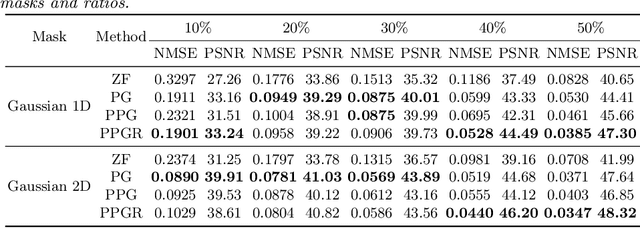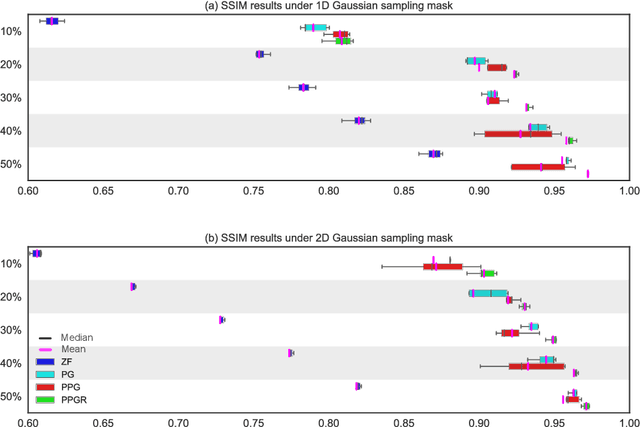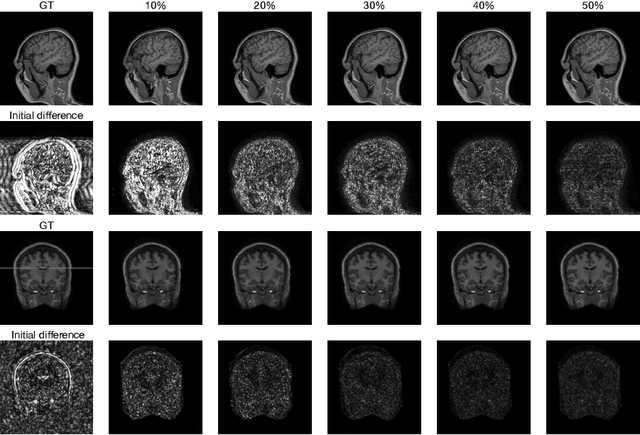Deep De-Aliasing for Fast Compressive Sensing MRI
Paper and Code
May 19, 2017



Fast Magnetic Resonance Imaging (MRI) is highly in demand for many clinical applications in order to reduce the scanning cost and improve the patient experience. This can also potentially increase the image quality by reducing the motion artefacts and contrast washout. However, once an image field of view and the desired resolution are chosen, the minimum scanning time is normally determined by the requirement of acquiring sufficient raw data to meet the Nyquist-Shannon sampling criteria. Compressive Sensing (CS) theory has been perfectly matched to the MRI scanning sequence design with much less required raw data for the image reconstruction. Inspired by recent advances in deep learning for solving various inverse problems, we propose a conditional Generative Adversarial Networks-based deep learning framework for de-aliasing and reconstructing MRI images from highly undersampled data with great promise to accelerate the data acquisition process. By coupling an innovative content loss with the adversarial loss our de-aliasing results are more realistic. Furthermore, we propose a refinement learning procedure for training the generator network, which can stabilise the training with fast convergence and less parameter tuning. We demonstrate that the proposed framework outperforms state-of-the-art CS-MRI methods, in terms of reconstruction error and perceptual image quality. In addition, our method can reconstruct each image in 0.22ms--0.37ms, which is promising for real-time applications.
 Add to Chrome
Add to Chrome Add to Firefox
Add to Firefox Add to Edge
Add to Edge